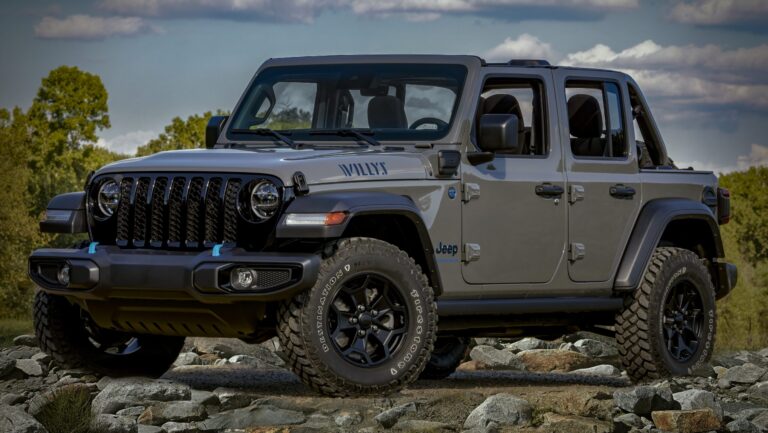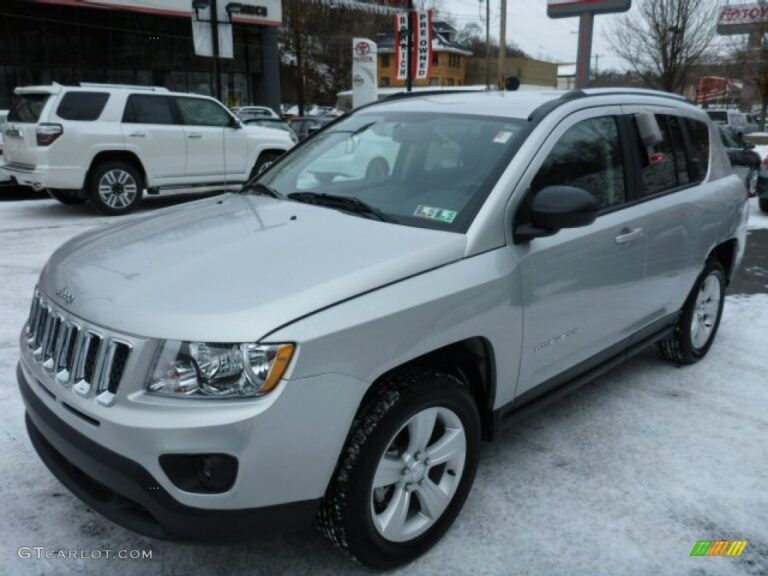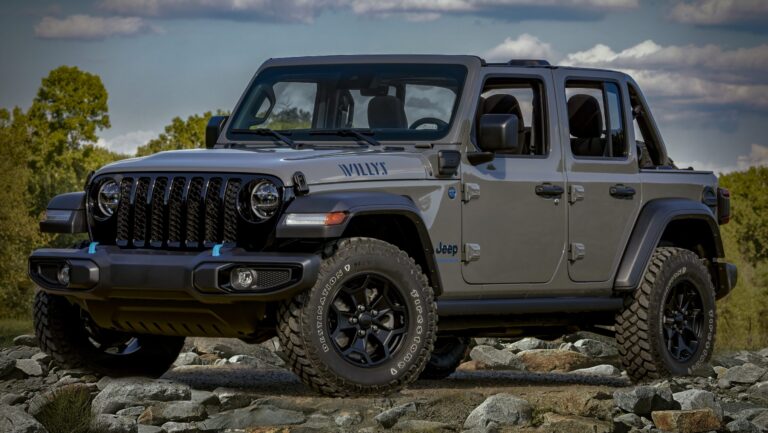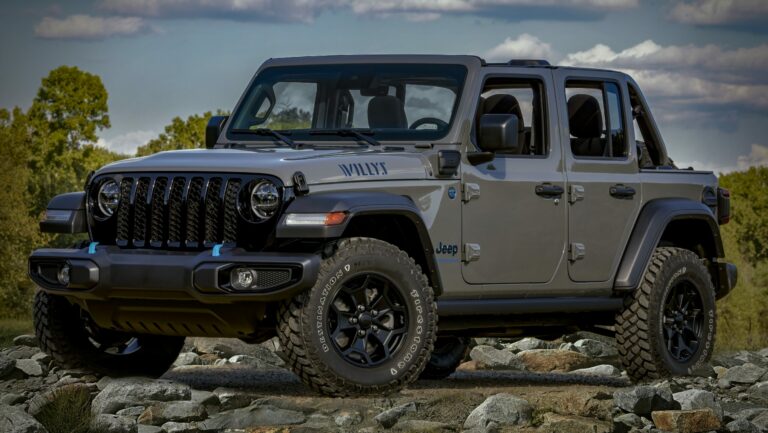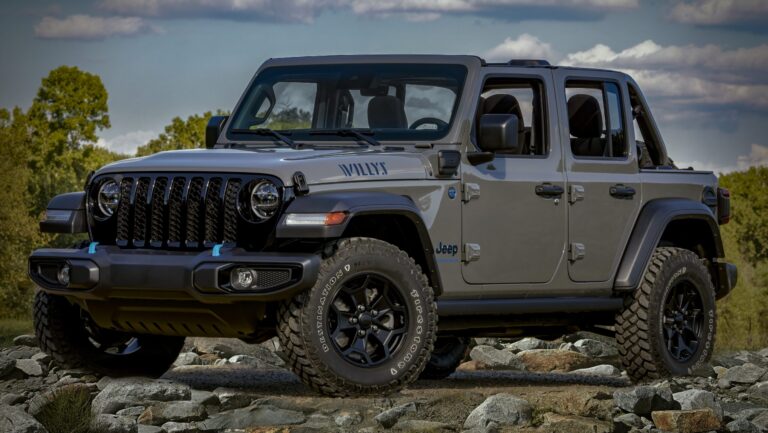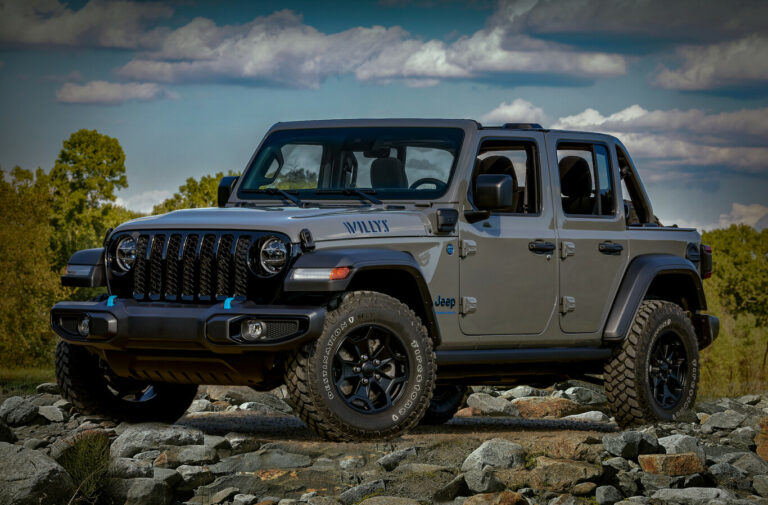2001 Jeep Grand Cherokee 4.7 Engine For Sale: A Comprehensive Buyer’s Guide
2001 Jeep Grand Cherokee 4.7 Engine For Sale: A Comprehensive Buyer’s Guide jeeps.truckstrend.com
The 2001 Jeep Grand Cherokee (WJ generation) holds a special place in the hearts of many automotive enthusiasts. Renowned for its blend of off-road capability, on-road comfort, and rugged good looks, it remains a popular choice for adventurers and daily drivers alike. At the heart of many of these beloved vehicles lies the robust 4.7-liter PowerTech V8 engine. While these engines are known for their power and durability, like any mechanical component, they can eventually reach the end of their lifespan or suffer from specific issues. When that happens, finding a reliable "2001 Jeep Grand Cherokee 4.7 Engine For Sale" becomes a critical quest for owners looking to breathe new life into their cherished WJ.
This comprehensive guide is designed to navigate the complexities of purchasing a replacement 4.7L engine, offering insights into types, considerations, where to buy, and what to expect, ensuring you make an informed decision to keep your Grand Cherokee roaring for years to come.
2001 Jeep Grand Cherokee 4.7 Engine For Sale: A Comprehensive Buyer’s Guide
Understanding the 4.7L PowerTech V8 Engine
Introduced in 1999, the 4.7-liter PowerTech V8 was a significant step up from the venerable 5.2L and 5.9L Magnum V8s it replaced in the Grand Cherokee lineup. This overhead cam (SOHC) engine was designed for improved fuel efficiency, reduced emissions, and enhanced performance. For the 2001 model year, the standard 4.7L V8 produced around 235 horsepower and 295 lb-ft of torque, offering excellent towing capacity and spirited acceleration for the Grand Cherokee. Later, a High Output (HO) version was introduced, but for a 2001 model, you’re primarily looking for the standard 4.7L.
Its appeal lies in its strong low-end torque, making it ideal for both highway cruising and challenging off-road conditions. Despite its general reliability, the 4.7L engine, particularly earlier iterations like the 2001, is known for a few specific vulnerabilities, most notably potential issues with dropped valve seats and oil sludge if maintenance is neglected. Understanding these characteristics is crucial when considering a replacement.
Why You Might Be Looking for a Replacement 4.7L Engine
There are several common reasons why a 2001 Jeep Grand Cherokee owner might be searching for a replacement 4.7L engine:
- Catastrophic Failure: Overheating leading to head gasket failure or cracked heads/block, a thrown rod, or major internal damage.
- High Mileage Wear: After hundreds of thousands of miles, components like piston rings, bearings, and valve train parts simply wear out, leading to excessive oil consumption, low compression, and reduced power.
- Known Issues: Specific problems like dropped valve seats (more common in pre-2002 models) or severe oil sludge accumulation can render an engine unrepairable or too costly to fix.
- Cost-Effectiveness: For many owners, the cost of replacing the engine is significantly less than purchasing a new or newer used vehicle, especially if the rest of the Grand Cherokee is in good condition. It’s a way to extend the life of a vehicle they love without breaking the bank.
- Project Vehicle: Some enthusiasts acquire non-running Grand Cherokees specifically for engine swaps or restoration projects.

Types of 4.7L Engines Available for Sale

When searching for a "2001 Jeep Grand Cherokee 4.7 Engine For Sale," you’ll encounter a few main categories, each with its own pros and cons:
-
Used/Salvage Engines:
- Description: These are engines pulled from wrecked or decommissioned vehicles. They typically come with their original mileage.
- Pros: Generally the most affordable option.
- Cons: Unknown history (maintenance, accident severity), potential for hidden damage or wear, and usually come with very limited or no warranty. It’s a gamble.
- Best For: Budget-conscious buyers willing to take a risk, or those needing core components for a rebuild.

-
Remanufactured/Rebuilt Engines:
- Description: These engines have been disassembled, cleaned, inspected, and had worn or damaged components replaced with new or reconditioned parts (e.g., new pistons, rings, bearings, camshafts, valve seats, gaskets). They are typically tested before sale.
- Pros: Closest to a new engine in terms of performance and reliability. Often come with a substantial warranty (e.g., 1-3 years, unlimited mileage). Many reputable rebuilders address common issues like valve seats with upgraded components.
- Cons: The most expensive option, but the added cost often pays for peace of mind and longevity.
- Best For: Owners looking for a long-term solution with reliability and warranty protection.
-
New Crate Engines:
- Description: While rare and exceptionally expensive for a 2001 model, these would be brand-new engines from the original manufacturer (Mopar) or an authorized supplier.
- Pros: Brand new, full factory warranty.
- Cons: Almost impossible to find for a 2001 model year, and if available, the cost would likely exceed the vehicle’s value.
- Best For: Not a practical option for a 2001 Grand Cherokee.
Key Considerations Before Purchasing
Before you commit to a purchase, it’s vital to do your homework. Here are crucial factors to consider:
- Compatibility: Ensure the engine is specifically for a 2001 Grand Cherokee 4.7L. While some components might interchange, there can be subtle differences in sensors, wiring, or ECU compatibility between model years or between the standard 4.7L and the 4.7L High Output (HO) engine. Stick to the exact specification or confirm full compatibility with your mechanic.
- Mileage (for used engines): Lower mileage is generally better. Request proof of mileage (e.g., from the donor vehicle’s VIN).
- Condition (for used engines):
- Visual Inspection: Look for signs of severe impact damage, cracks, excessive rust, or indications of neglect (sludge build-up under the oil cap).
- Oil Pan Inspection: If possible, check the oil pan for excessive metal shavings.
- Compression/Leak-Down Test: Ask the seller if they have results from these tests. Good compression indicates healthy rings and valves.
- Coolant Contamination: Check for milky oil or oil in the coolant, which suggests internal leaks.
- Warranty: This is paramount, especially for remanufactured engines. Understand what the warranty covers (parts only, parts and labor), its duration, and any conditions (e.g., professional installation required, specific maintenance schedule).
- Seller Reputation: Buy from reputable dealers, salvage yards, or remanufacturers with positive reviews and a track record. Avoid sellers who are vague or unwilling to provide details.
- Shipping & Logistics: Engines are heavy. Factor in shipping costs, crating, and secure delivery. Ensure the seller can arrange safe transport.
- Included Components: Clarify what comes with the engine. Is it a long block (block, heads, oil pan, valve covers) or a short block (block, crankshaft, pistons, connecting rods)? Does it include accessories like the intake manifold, exhaust manifolds, alternator, power steering pump, or A/C compressor? Often, these accessories are not included, and you’ll transfer them from your old engine.
Where to Find a 2001 Jeep Grand Cherokee 4.7 Engine for Sale
- Specialized Engine Suppliers & Remanufacturers: Companies like Jasper Engines, Fraser Engines, or local independent engine rebuilders are excellent sources for remanufactured units. They offer warranties and often have strict quality control processes.
- Online Auto Parts Marketplaces:
- eBay Motors: A vast selection of used and remanufactured engines from various sellers. Use filters carefully.
- Car-Part.com: A massive database connecting you to salvage yards across North America. You can search by specific vehicle and part.
- LKQ Online: One of the largest recyclers of automotive parts, offering a wide inventory of used engines.
- Facebook Marketplace/Groups: Local listings from individuals or small shops. Be extra cautious and verify information.
- Local Salvage Yards/Auto Recyclers: Visiting in person allows for direct inspection of used engines. Develop a relationship with your local yard.
- Jeep Forums & Enthusiast Groups: Sometimes, fellow enthusiasts might be selling a good running engine from a parted-out vehicle. These communities can also offer valuable advice.
The Buying Process & What to Ask
Once you’ve identified a potential engine:
- Gather Information: Ask for the donor vehicle’s VIN (for used engines), the exact mileage, and the reason for the vehicle’s decommissioning.
- Request Photos/Videos: Ask for detailed photos or a video of the engine, especially showing areas prone to issues (e.g., valve covers, oil pan area, overall cleanliness).
- Inquire About Testing: For used engines, ask if it was tested before removal (e.g., compression test, run test). For remanufactured, ask about their testing procedures.
- Understand the Warranty: Get the warranty details in writing.
- Shipping Quote: Obtain a firm shipping quote to your location or your mechanic’s shop.
- Payment & Escrow: For online purchases, consider using secure payment methods or an escrow service to protect yourself.
- Inspection Upon Delivery: As soon as the engine arrives, thoroughly inspect it for shipping damage and ensure it matches the description before signing off on the delivery.
Installation & Post-Installation Tips
- Professional Installation: Unless you are an experienced mechanic with the right tools, professional installation is highly recommended. Engine swaps are complex.
- New Components: It’s wise to replace key peripheral components during the swap, regardless of the engine type:
- Water pump, thermostat, engine sensors (crankshaft, camshaft, O2), spark plugs, ignition coils, all belts and hoses, radiator (if old or damaged), engine mounts.
- Fluids: Use fresh, high-quality engine oil (synthetic recommended for the 4.7L), coolant, and transmission fluid.
- Break-In Procedure: If installing a remanufactured engine, follow the rebuilder’s specific break-in procedure. This is critical for longevity and warranty validity.
- Address Associated Issues: If your old engine failed due to overheating, ensure your entire cooling system (radiator, fan, hoses) is in top condition before installing the new engine.
Common Issues to Watch For (and Solutions)
While the 4.7L is generally solid, some issues are more prevalent:
- Dropped Valve Seats (especially pre-2002): The original aluminum cylinder heads had pressed-in valve seats that could loosen and drop, causing catastrophic engine failure.
- Solution: For remanufactured engines, confirm the rebuilder uses updated heads with improved valve seat retention or steel inserts. For used engines, this is a risk you take. Aftermarket cylinder heads are available with a better design.
- Oil Sludge/Blockage: Caused by infrequent oil changes or using non-synthetic oil. Can lead to oil starvation and lifter noise.
- Solution: Regular oil changes with quality synthetic oil (5W-30 or 10W-30) are crucial. A clean engine is a happy engine.
- Overheating: This engine doesn’t tolerate overheating well.
- Solution: Ensure the entire cooling system (radiator, fan, water pump, thermostat, hoses) is in excellent condition. Consider a heavy-duty radiator if you tow or live in hot climates.
Price Table: 2001 Jeep Grand Cherokee 4.7 Engine For Sale (Estimates)
| Engine Type | Estimated Price Range (USD) | Typical Mileage (Used) | Warranty | Key Inclusions & Notes “`
2001 Jeep Grand Cherokee 4.7 Engine For Sale: A Comprehensive Buyer’s Guide
The 2001 Jeep Grand Cherokee (WJ generation) holds a special place in the hearts of many automotive enthusiasts. Renowned for its blend of off-road capability, on-road comfort, and rugged good looks, it remains a popular choice for adventurers and daily drivers alike. At the heart of many of these beloved vehicles lies the robust 4.7-liter PowerTech V8 engine. While these engines are known for their power and durability, like any mechanical component, they can eventually reach the end of their lifespan or suffer from specific issues. When that happens, finding a reliable "2001 Jeep Grand Cherokee 4.7 Engine For Sale" becomes a critical quest for owners looking to breathe new life into their cherished WJ.
This


